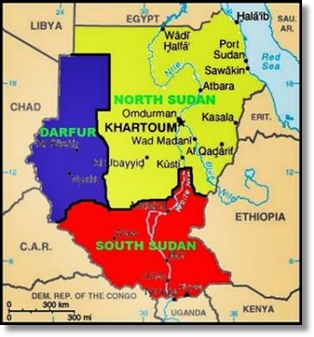Sudan: World Awaits Historic Decision

 |
It is important to note that the United Nations had adjudged the registration exercise as free and transparent. The government of Sudan is on record restating its commitment to the implementation of the 2005 Comprehensive Peace Agreement, including the conduct of a self determination referendum in Southern Sudan. The interim government of Southern Sudan is also on record regarding its preparation for the peaceful conduct of a referendum.
For all practical purposes, a new republic of Southern Sudan will be born on January 9, 2011. The critical question is whether the government of Sudan, Africa and the international community is ready to adequately midwife the birth of a new nation that will rise from the ashes of one of the longest civil wars in Africa. Will the government of Sudan abide by its international obligations and let go of the oil rich Southern Sudan? If the government of Sudan will not let go, is the government of Southern Sudan sufficiently prepared militarily and politically to survive? Is the African Union ready to intervene if skirmishes or even war erupts between North and South Sudan? What is the measurable, verifiable contingency plan by the United Nations, the European Union and South-South nations if post referendum chaos erupts in Southern Sudan? How will the powerful five permanent members of the United Nations Security Council react to potential post referendum violence in Southern Sudan? In particular, what will be the specific response by the Obama Administration in view of its significant investment in a peaceful referendum?
To date, everybody involved with the logistics and planning for the referendum in Southern Sudan is playing nice and hoping for the best in what may become an explosive situation. It is better to be prepared than sorry in this delicate situation. Very few countries in the world have peacefully let go a rich segment of their jurisdiction. Stakeholders in the January 9th Referendum need to establish specific contingency plans for a possible post referendum chaos in Southern Sudan. Part of this contingency plan should include specific repercussions for individuals, organizations and nations that sabotage the referendum or support post voting violence. It is also critical that the African Union and the international community ensure that the will of the people of Southern Sudan prevails during the referendum. The referendum should not only be peaceful but verifiably fair and transparent.
It is also important for African governments, the African Union, international development institutions and the international community to invest significantly in a democratic, religiously tolerant, transparently managed Southern Sudan. The will of the long suffering people of Southern Sudan can only be fulfilled if the new country is governed with strong democratic traditions of representative government and transparent management of scarce resources. In particular, an independent Southern Sudan should maximize the advantages of its diverse society by ensuring broad representation in leadership positions, in the allocation of public resources and in the spread of government amenities to all parts of the country.
In particular, the new government of Southern Sudan facing gaps in public and private sector technical capacity should build and sustain a powerful relationship with Southern Sudanese in Diaspora. The Southern Sudanese in Diaspora played important role in the struggle for self determination. Individuals with demonstrable technical skills should be encouraged to come back and contribute to the sustainable development of the new country. The acrimonious dichotomy that often exists between newly independent African countries and their brethren in the Diaspora should be strenuously avoided.
Soon, the newest independent country in the world will be born on January 9th, 2011 in one of the most historical parts of Africa. Eternal vigilance should be the watchword so that the newly independent Southern Sudan can fulfill its promise to the idealistic young men and women that laid down their lives in search of freedom. Perhaps, finally, the lost boys of Sudan can metaphorically come back home to their cherished, ancient land and help build a modern, prosperous country.
By Dr. Chinua Akukwe.
The author is former Chair of the Africa Center for Health and Human Security at the George Washington University, Washington, DC. He is the Chair of the Africa Union Africa Diaspora Health Initiative, Washington, DC.
